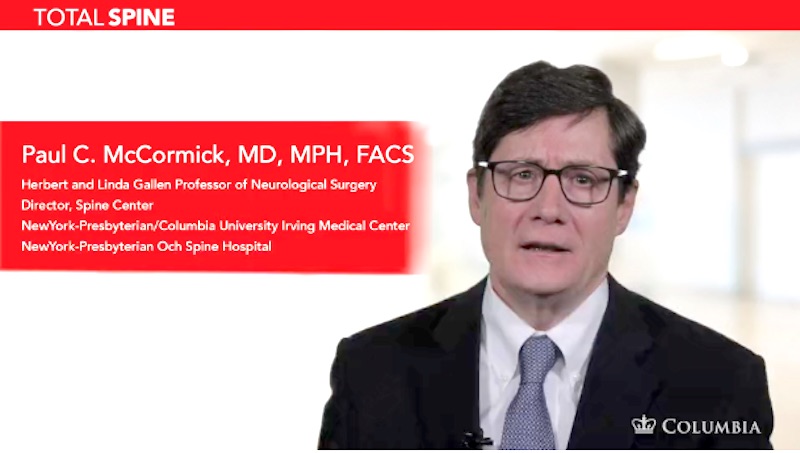
Spring put extra pep in our step. Between raising awareness about rare diseases and refining surgical techniques for children, there wasn’t a dull moment at The Spine Hospital at the Neurological Institute of New York. Enjoy our highlights from the season:
- When It Comes to Cervical Spine Surgery, Kids Get Special Treatment
Kids are not just small adults. Their bodies grow and change rapidly, so when a child has a spine problem that requires surgery, special treatment is critical to preserve normal growth.
With that in mind, neurosurgeons Dr. Peter D. Angevine and Dr. Richard C.E. Anderson collaborated with their colleagues in Columbia’s Department of Orthopedics to tailor an approach to kids. Together, they devised a surgical technique called temporary occipital fixation that allows for greater preservation of spinal growth in children who have problems affecting the upper (cervical) spine.
Drs. Angevine and Anderson and their colleagues described this new technique in a research article published in Neurosurgical Focus.
To continue reading…
2. Dr. McCormick Honored at Spine Summit
Surgeon. Researcher. Teacher. Leader. All words that describe Dr. Paul C. McCormick, Director of the Spine Hospital. He has contributed greatly to the field of neurosurgery, positively impacting colleagues and patients alike. His contributions include:
- Holding leadership positions at several prominent neurosurgical and spine organizations
- Publishing more than 200 scientific papers and book chapters
- Being an invited speaker at more than 230 scientific meetings and an honored lecturer at 35 institutions throughout North and South America, Europe and the Middle East.
Dr. McCormick’s many contributions were recognized when he received the Meritorious Member Spine Award at Spine Summit 2018, an international meeting of neurosurgeons.
To continue reading…
3. Neurofibromatosis – What and How. A Columbia University Medical Center Neurosurgeon’s Take
Neurofibromatosis is a rare disease that most people have never heard of. The disorder causes noncancerous tumors called neurofibromas and problems including pain, disfigurement and disability throughout a person’s life. To help spread the word, May 17 has been designated Neurofibromatosis Awareness Day.
In honor of this day, Dr. Christopher Mandigo, an expert in treating neurofibromas related to the spine, explains what neurofibromatosis is and how it causes symptoms. He also shares how neurofibromatosis is treated, when surgery is warranted and what the future holds for this rare disease.
To continue reading…
Learn more about our Spine Hospital neurosurgeons at their bio pages below:
- Dr. Angevine
- Dr. Mandigo
- Dr. McCormick


